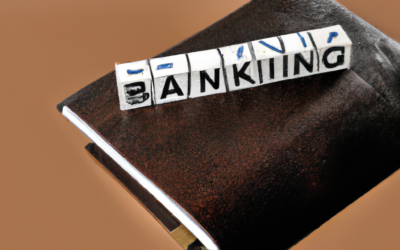Binance.US alters FDIC Coverage for Crypto Deposits
In a recent update to its terms of service, Binance.US, the popular cryptocurrency exchange, clarified that digital assets deposited on the platform do not qualify for FDIC insurance coverage. The update, made on October 16, aims to provide better transparency and understanding for users regarding the protection of their crypto assets. This news has garnered attention from cryptocurrency enthusiasts and users of the platform who were seeking clarity on the matter.
Understanding the FDIC Coverage
The Federal Deposit Insurance Corporation (FDIC) is an independent agency of the United States government that provides deposit insurance to depositors in US banks. It was established to maintain stability and public confidence in the nation’s banking system. FDIC insurance offers protection for deposit accounts, such as checking, savings, and certificates of deposit (CDs), up to $250,000 per depositor, per insured bank.
However, it is important to note that the FDIC coverage is limited to traditional fiat currencies, such as the US dollar, and does not extend to digital assets, including cryptocurrencies like Bitcoin, Ethereum, or any other altcoins.
Binance.US’s Clarification
Binance.US, a subsidiary of Binance, one of the world’s largest cryptocurrency exchanges, made it clear in their terms of service update that digital assets held on their platform are not covered by FDIC insurance. This means that in the event of any theft, loss, or hacking, users will not be able to claim FDIC insurance for their crypto assets.
The clarification by Binance.US is in line with the current regulatory landscape surrounding cryptocurrencies. While digital assets offer numerous advantages, they also come with unique risks. As a result, it is crucial for users to understand the implications and take appropriate measures to protect their investments.
Importance of Protecting Crypto Assets
With the increasing popularity of cryptocurrencies, it is imperative for users to be aware of the security measures they can take to safeguard their digital assets. Unlike traditional banking systems, cryptocurrencies operate on decentralized networks, making them more vulnerable to hacking and theft.
To protect their crypto holdings, users are encouraged to follow best practices such as using strong, unique passwords, enabling two-factor authentication (2FA), and storing their digital assets in secure hardware wallets or cold storage. Additionally, staying informed about the latest security threats and regularly updating software and wallets can help mitigate potential risks.
Frequently Asked Questions
Q: What is Binance.US?
A: Binance.US is a cryptocurrency exchange that focuses on serving customers in the United States. It operates under the regulatory framework of the country and offers a wide range of cryptocurrencies for trading.
Q: What does FDIC insurance cover?
A: FDIC insurance covers traditional fiat currency deposits, such as the US dollar, held in FDIC-insured banks. It provides protection up to $250,000 per depositor, per insured bank.
Q: What are digital assets?
A: Digital assets are cryptocurrencies, tokens, or other virtual currencies that exist in electronic or digital form. Bitcoin, Ethereum, and Ripple are examples of digital assets.
Q: How can I protect my crypto assets?
A: To protect your crypto assets, you should use strong, unique passwords, enable two-factor authentication (2FA), and store your digital assets in secure wallets or cold storage. Staying informed about security threats and regularly updating software and wallets is also important.
In conclusion, Binance.US’s recent clarification regarding FDIC insurance coverage for crypto deposits reaffirms the need for individuals to understand the risks associated with digital assets. While FDIC insurance provides protection for traditional fiat currency deposits, it does not extend to cryptocurrencies. Users must take proactive steps to secure their crypto assets and stay informed about the evolving regulatory landscape surrounding cryptocurrencies.
For more information about banking and financial services, visit VisBanking. To explore their pricing options, click here. If you would like to request a demo, please click here.





